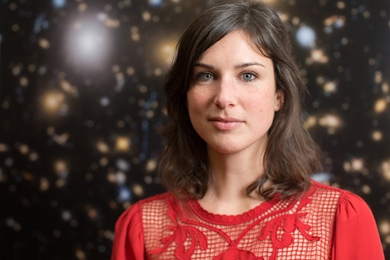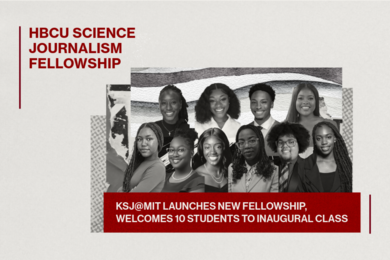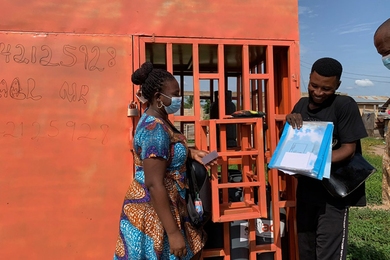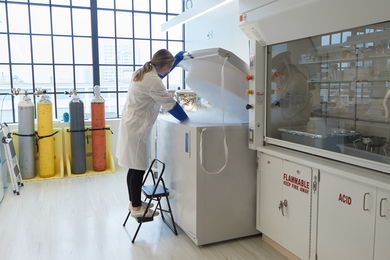In remarks that addressed US fears about nuclear weapons in the post-Cold War world, former CIA director John Deutch and two other panelists gave appraisals of the current state of affairs and laid out best- and worst-case scenarios for the future during "Loose Nukes," an October 14 Catherine N. Stratton Lecture on Critical Issues.
Graham Allison, former assistant secretary of defense, and Jessica Mathews, president of the Carnegie Endowment for International Peace, joined Institute Professor Deutch on a panel that warned of the potential for disaster should the Russian government lose control of the nuclear weapons now in its possession. The cautionary trio shared a concern that terrorist groups or rogue governments would gain control of nuclear weapons or materials, but differed in their approaches to the dilemma.
Professor Deutch, also former deputy secretary of defense and former undersecretary of energy, stated that nuclear weapons remain an important part of US political/military strength.
"No nation can hope to have our capability, and so they are dissuaded from trying to accomplish this or even obtain nuclear weapons," said Professor Deutch, who also argued that fewer nuclear weapons would be better, and would also be cheaper to maintain.
"There are opportunities for reduction that would not impair national security," he said. Arms reduction talks between the former Soviet Union and the United States must lead to a series of mutually agreed activities to reduce weapons, must cover both strategic and tactical weapons, and must include the process of dismantlement and disposal of the weapons. He also pointed out that since the end of the Cold War, there have been no net additions to the world's nuclear club.
Dr. Allison, who is director of the Center of Science and International Affairs at Harvard's Kennedy School of Government, cautioned against complacency toward the former Soviet Union's nuclear arsenal.
"Despite the fact of the Cold War being over, the problem of nuclear danger has not ended. There are 30,000 nuclear weapons left in the midst of a society being convulsed by a revolution that is collapsing all central control systems. Those nuclear weapons remain vulnerable to theft and sale in a way that they were never vulnerable before," he said.
He painted a frightening scenario of a terrorist detonating a small nuclear "suitcase" weapon in a crowded public space in the United States. To avoid such a disaster, he recommended that the US government purchase all nuclear weapons and materials from Russia within the next two years.
Dr. Mathews, a former officer in the White House and in the State Department, cautioned that the Russians might not be anxious to sell all their plutonium, seeing it "as an asset, not an albatross."
Assuming they did sell, the United States would face the more basic dilemma of what to do with the nuclear material once purchased. She recommended that the US stop drawing a "false distinction between military and civilian plutonium" and stop trying to reach an unattainable standard of nuclear waste disposal.
"We have spent upwards of 40 years pursuing a dead-end technology for disposal of nuclear fuel that is never going to work, and that attempts to satisfy an unnecessary and unattainable standard," she said. "The law now states that waste be made safe for 10,000 years. But almost all radioactivity is gone in 5,000 years."
The United States should "build a subsurface retrieval and storage facility and count on human intelligence instead of geology to manage it," said Dr. Mathews. The obvious place for such a storage facility is "the Nevada test site. It is bigger than the state of Rhode Island -- a huge, remote, dry, empty place." However, she acknowledged that it would be political death for any Nevada legislator to agree to such a step.
In the meantime, the government should "oppose production of a single additional gram of plutonium until we deal with the existing 100 tons," she said.
The Catherine N. Stratton Lecture Series honors Kay Stratton, wife of the late MIT President Julius A. Stratton. Her 50-plus years of commitment to the Institute include not only the annual Critical Issues lectures, but also the seminars on Aging Successfully held every spring. The series is supported by an endowed fund initially seeded by the MIT Women's League.
A version of this article appeared in MIT Tech Talk on October 22, 1997.





